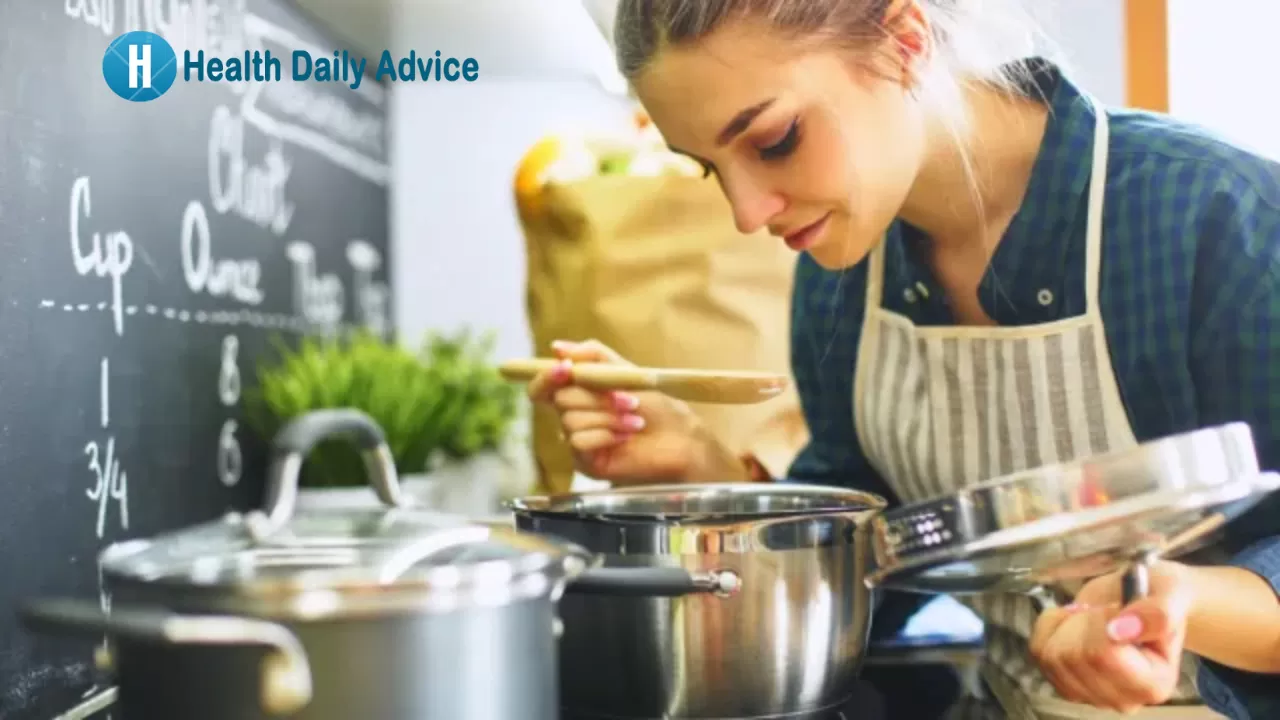Introduction
In our pursuit of a healthy lifestyle, we often concentrate on the nutritional aspects of our diet. However, the impact of kitchen items on our well-being is a crucial consideration. Beyond the ingredients, cookware, utensils, and other kitchen essentials play a significant role in determining the healthiness of our meals. This article sheds light on specific kitchen items that, when exposed to heat or acidic substances, may release harmful chemicals, potentially elevating the risk of cancer. Understanding these risks empowers us to make informed choices for a healthier kitchen environment. In This Article, We tell you 6 Kitchen Items That May Increase Your Risk of Cancer.
6 Kitchen Items That May Increase Your Risk of Cancer
The kitchen, often regarded as the heart of the home, can also harbor hidden threats. Let’s explore six common kitchen items that may pose risks to our health:
1. Non-Stick Cookware
Non-stick cookware is convenient and easy to clean, but it comes at a cost. The non-stick coating is made up of a chemical called perfluorooctanoic acid (PFOA), which can be released into food when heated at high temperatures. Studies have linked PFOA exposure to cancer, including liver, pancreas, and testicular cancer. To avoid this, it is best to use stainless steel, cast iron, or ceramic cookware instead.
2. Plastic Containers
Many plastic containers contain a chemical called bisphenol-A (BPA), which can leach into food when heated. BPA has been linked to breast and prostate cancer, as well as other health issues such as obesity and diabetes. It is best to avoid heating food in plastic containers, especially those that are not labeled “microwave-safe.” Instead, use glass or ceramic containers for heating food.
3. Aluminum Cookware
Aluminum cookware is a popular choice because it is lightweight and affordable. However, aluminum can leach into food when heated, which can be harmful to your health. Studies have linked high levels of aluminum in the body to an increased risk of Alzheimer’s disease, as well as breast cancer and other health issues. To avoid this, use stainless steel or cast iron cookware instead.
4. Teflon-coated Utensils
Teflon-coated utensils are also convenient and easy to use, but they may not be the best choice for your health. The Teflon coating contains PFOA, which can be released into food when scratched or heated. It is best to use stainless steel or silicone utensils instead.
5. Styrofoam Cups and Containers
Styrofoam cups and containers are commonly used for takeout food and drinks, but they are not safe for your health. Styrofoam contains a chemical called styrene, which can leach into food and drinks. Styrene is a known carcinogen and has been linked to several types of cancer, including leukemia, lymphoma, and breast cancer. It is best to use glass or ceramic containers for your food and drinks.
6. Charred or Burnt Food
Cooking food at high temperatures can create harmful chemicals, including heterocyclic amines (HCAs) and polycyclic aromatic hydrocarbons (PAHs). These chemicals can form when meat is charred or burnt, and they have been linked to an increased risk of cancer, including colorectal, stomach, and pancreatic cancer. To reduce your risk, avoid charring or burning your food and cook it at lower temperatures instead.
Conclusion
In conclusion, the kitchen items we use can have a significant impact on our health. Non-stick cookware, plastic containers, aluminum cookware, Teflon-coated utensils, Styrofoam cups and containers, and charred or burnt food are all potential sources of harmful chemicals that can increase the risk of cancer. By being aware of these items and making simple changes, such as using stainless steel or ceramic cookware and avoiding heating food in plastic containers, we can reduce our exposure to these chemicals and protect our health.
FAQs
Stainless steel, cast iron, and ceramic cookware are safe alternatives to non-stick cookware.
Yes, it is safe to use plastic containers for storing food, but it is best to use those labeled “microwave-safe” and avoid heating food in them.
Yes, aluminum cookware can increase the risk of cancer as it can leach into food when heated.
Stainless steel and silicone utensils are safe alternatives to Teflon-coated utensils.
To reduce your exposure, avoid charring or burning your food and cook it at lower temperatures instead.
Note:
Share your thoughts or experiences in the comments. Your insights can help others make informed choices. For more articles on cancer-related topics, stay tuned to Health Daily Advice and visit our dedicated section on Cancer.













